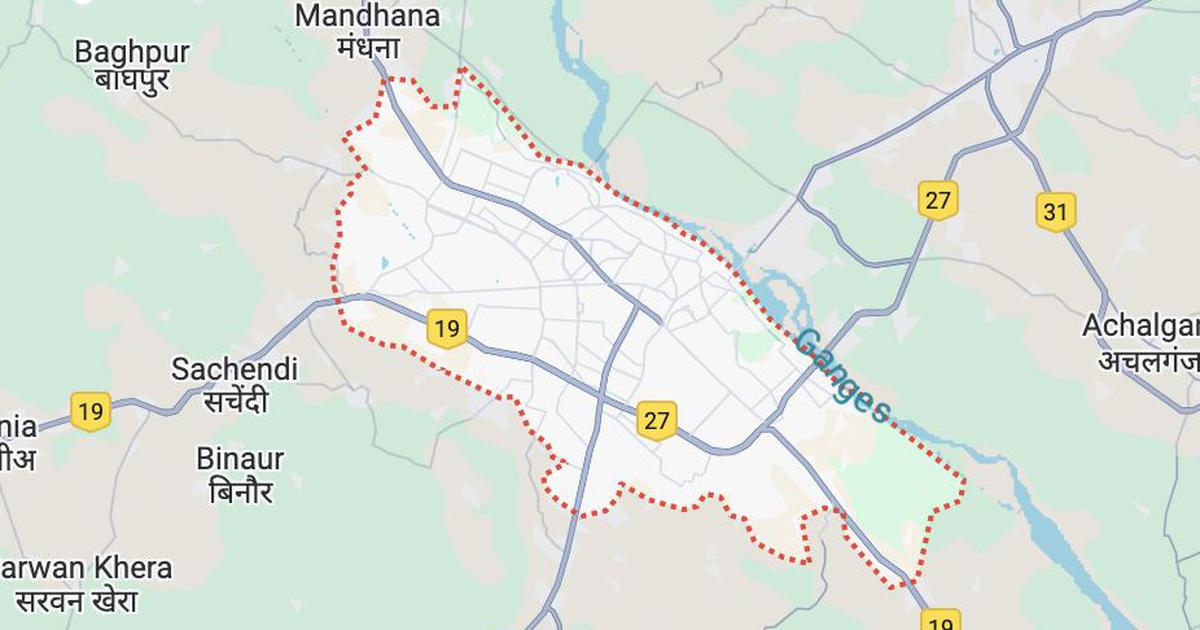
By SIMRIN SIRUR
Imphal: When the Manipur police barged into journalist Kishorechandra Wangkhem’s home in Imphal on 13 May, his children — seven, three, and nine months — were paralysed with terror.
“Our oldest immediately turned to pacify our second child, who started to cry and couldn’t hold her stool. Our third is still a baby,” said Wangkhem’s wife, Ranjita. “For me, this is no longer a shock.”
About five kilometres away, political activist Erendro Leichombam’s house was similarly stormed by a team of police officers, who allegedly assaulted his elderly mother and dragged Leichombam out of his room, without giving him a chance to change out of his nightclothes.
“Nothing could stop them. No amount of pleading. They acted like he was some major criminal. He didn’t resist the arrest at all,” said Leichombam’s mother, L. Landhoni. “They hit me and pushed me aside, and I had difficulty breathing for 15 days after.”
Wangkhem and Leichombam were arrested after BJP functionaries complained about their Facebook posts, which said that “cow dung and cow urine” don’t cure Covid-19. It was in the context of state BJP leader S. Tikendra Singh’s death due to the illness.
“The cure for Corona is not cow dung & cow urine. The cure is science & common sense. Professor ji RIP,” Leichombam had written.
“Santhi Sanyung na yadrabo, oh!!! RIP # Rashikang Kangyet Hayeng nga chani,” Wangkhem had written, which loosely translates to “cow dung, cow urine didn’t work”.
Their fate was sealed when the Imphal West District Magistrate, Th. Kirankumar, ordered their detention under the stringent National Security Act (NSA) on 17 May on the grounds that their posts could “endanger the maintenance of public order”.
For over 40 days, the two have been languishing in Imphal’s Sajiwa jail without trial. An appeal to the district magistrate and state government to revoke the charges were both rejected.
With the routes for appeal narrowing, the families of the two are anxiously awaiting a response from the central government, failing which they will approach the Manipur High Court.
“What else is there to do or say? We will wait, and we will abide by the law. And hope that the law comes through for us,” said Ranjita.
The Manipur government says it has nothing to do with the case.
“It was a district official who has taken action against them after finding merit in the case; there must be substance in it,” Biswajit Singh, Manipur’s Minister of Information and Public Relations, told ThePrint. “The government has taken note of the entire issue; the file is pending with the CM.”
ThePrint reached DM Th. Kirankumar via calls and messages repeatedly, but there was no response till the time of publishing this report.
A deeper malaise
The arrests are part of a deeper malaise in Manipur — a crackdown on the freedom of expression has been palpable across the state.
A report by website Article 14 found that in April 2020 alone, the Manipur government had filed 13 cases of sedition and other laws to curb criticism against its handling of the Covid-19 crisis.
Manipur also leads the country when it comes to cases under the Unlawful Activities (Prevention) Act, with 1,786 cases filed between 2015 and 2019. In 2017, the state detained six people under the National Security Act, according to the latest figures with the National Crime Records Bureau.
Apart from Wangkhem and Leichombam, the Manipur Police made at least two more detentions under NSA in June 2021 alone, documents accessed by ThePrint show.
“Everything is done on the whims of the chief minister (N. Biren Singh) and the ruling party,” said Babloo Loitongbam, director of Human Rights Alert, a human rights organisation based in Imphal.
“The crackdown on freedom of speech has definitely had implications in terms of self-censorship. There’s only a handful of people who speak up without fear of retribution.”
A 2020 study by Open Technology Funds, a global non-profit organisation committed to advancing internet freedom, claimed Manipuri journalists continue to face threats from “influential people and politicians”.
“Members of the Manipuri press have long faced legal impediments and threats to their life and property. They continue to do so,” the study said. “The threats they face now come primarily from influential people and politicians, as well as non-state actors (such as underground groups). From time to time, members of the press also face state control and censorship.”
In March this year, the chief minister warned against “misusing” the freedom of speech, saying, “In cases where security and public order is violated, the law will automatically take its course.”
Wangkhem and Leichombam are both considered outspoken critics of the BJP government in Manipur, and have had multiple cases filed against them as a result. Wangkhem was first slapped with NSA in 2018 after he questioned the birth anniversary celebrations of freedom fighter Rani Laxmi Bai in the state, and insulted both Chief Minister Biren Singh and Prime Minister Narendra Modi in a Facebook post.
Wangkhem is a journalist with the Frontier Manipur, an independent news website that, in its mission statement, says it is unafraid of delivering facts to its readers, “even if those in power want to either camouflage or hide the issues under the carpet”.
The Frontier’s editor and executive editor, Dhiren Sadokpam and Paojel Chaoba, were both charged with sedition and detained under the UAPA in January this year after publishing a controversial opinion piece about militancy in Manipur on their website.
Leichombam, who in 2016 founded the Peoples’ Resurgence and Justice Alliance with Irom Sharmila — a world renowned human right’s activist — has also had a litany of cases against him. Last year, he was charged with sedition after he called BJP MLA and Manipur’s titular king, Sanajaoba Leishemba, a “son of a servant”.
“I’m always thinking twice about what to post, what not to post. And the people around us are thinking the same thing,” Leichombam’s sister Anupama told ThePrint.
Ranjita said she’d given up expecting vocal public support from the people around her.
“There are a few people who have come forward to help and have provided support. But there is a fear psychosis,” she said. “Most people are too busy looking over their shoulders to speak up.”
The freedom to speak
The complaints against Wangkhem and Leichombam were registered by the state BJP’s general secretary, Meitei Premananda, and the president of Thoubal district, Yumnam Kumarjit Singh, within minutes of their Facebook posts going up.
Leichombam had even deleted his status upon his sister’s insistence but was arrested anyway. “I knew something would happen. He finally deleted it after we warned him but clearly it didn’t help,” said his sister Anupama.
A case was filed, nonetheless, under sections 153-A (Promoting enmity between different groups and doing acts prejudicial to maintenance of harmony) and 505(b)(2) (intent to cause, or which is likely to cause, fear or alarm to the public, or to any section of the public whereby any person may be induced to commit an offence against the state or against the public tranquility) of the Indian Penal Code.
“The first issue was the court granting police custody, from 14 to 17 May, when there is a Supreme Court order that says this shouldn’t be done for cases punishable up to seven years, on account of the pandemic,” Victor Chongtham, the duo’s lawyer, told ThePrint.
On 17 May, the chief judicial magistrate of Imphal West granted the two bail, but the police hastily imposed NSA within hours of the order, the lawyer said.
“The police went ahead and detained them under NSA before the court’s orders could be complied with,” Chongtham said. “Normally, the prayer for NSA should take place while the bail proceedings are on.”
At the time of their re-arrest, the police only had a signed order by the DM, with the grounds of their arrest being produced later, on 19 May.
According to the DM, the posts proved the two were “hard core” and “habitual” offenders who were “likely to create large scale religious hatred, violence, riots, etc,” and were “spreading enmity and ill will”.
“There is nothing in these statements that threatens national security. Such orders threaten the constitutional right to the freedom of expression,” Chongtham said.
Appeals were made to the district magistrate and state home department, led by the chief minister, on the grounds that the posts did not constitute a security threat but were in mere jest and not against the law. Both were rejected and found to be “devoid of merit”.
A final appeal has been made to the Union home ministry, failing which, the order will be challenged in the Manipur High Court.
ThePrint reached the spokesperson for the Ministry of Home Affairs Nitin Wakankar via text message but he said there was “no response so far”.
This story was first appeared on theprint.in






